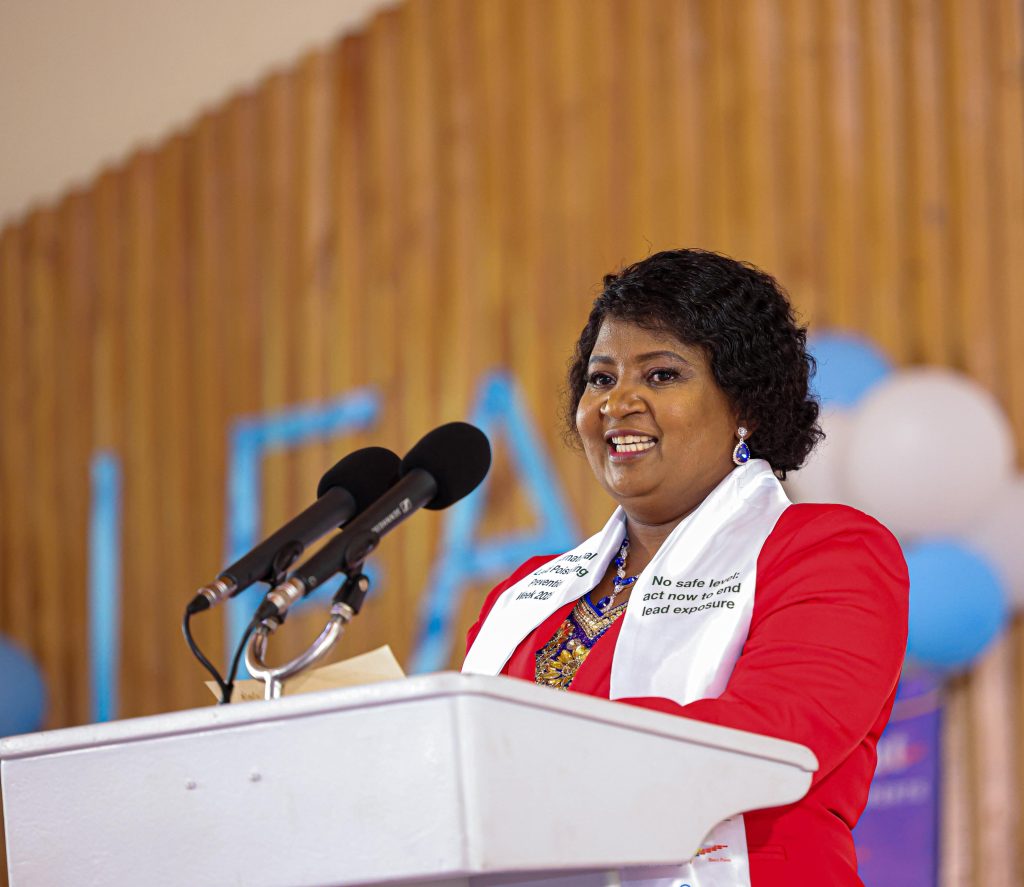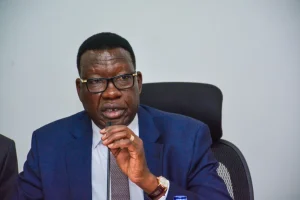Deputy President’s Spouse, Dr Joyce Kithure, Friday called for stronger action to curb high levels of lead in various forms in the country, saying it is exposing Kenyans to higher health risks.
Dr. Kithure said lead is a dangerous heavy metal that needs to be removed from all goods and places accessible to citizens.
Speaking on Friday when she addressed the 13th International Lead Poisoning Prevention Week of Action at the University of Nairobi, Chiromo Campus, Dr. Kithure said there are no levels of safe lead pushing for its total ban in the country.
“Lead poisoning remains a silent public health crisis. It does not announce itself with pain or fever; it seeps quietly into the bloodstream, impairing the development of young minds, lowering IQ, damaging organs, and stealing futures before they even begin,” she said.
She said the metal has found its way in different forms including through children’s toys, paints, road markings and other dangerous forms.
“Lead is not merely an entry on the Periodic Table. It is a silent predator, invisible, odourless and relentless. It infiltrates our homes through peeling paints, our schools through crumbling walls, our streets through road markings, and even in our children’s toys,” Dr. Kithure added.
The World Health Organization (WHO) estimates that nearly one in every three children globally has blood lead levels above the acceptable limit. In Kenya, recent studies, many conducted by researchers at the University of Nairobi show worrying evidence of lead exposure, especially in informal settlements and industrial zones.
“Let us ensure that ‘lead-free’ is not just a slogan on a banner—but a standard enforced in every factory, every hardware store, every classroom, and every home.
Let us unite our voices as scientists, policymakers, mothers, fathers, teachers, and students and say with conviction: ‘There is no safe level of lead’. Every life deserves protection. Every community deserves a cleanenvironment,” said Dr. Kithure, also a scientist and senior lecturer at the University of Nairobi.
She said the government is working with all the stakeholders to achieve a lead-free nation highlighting the ban on leaded paints and fuel, better enforcement of compliance standards, monitoring of lead levels in water, soil, and manufactured products, and promoting public awareness on safe waste management and recycling practices.
“Government action alone is not enough; it is the synergy between researchers, policymakers, industries and communities that will deliver real change,” Dr. Kithure noted.





